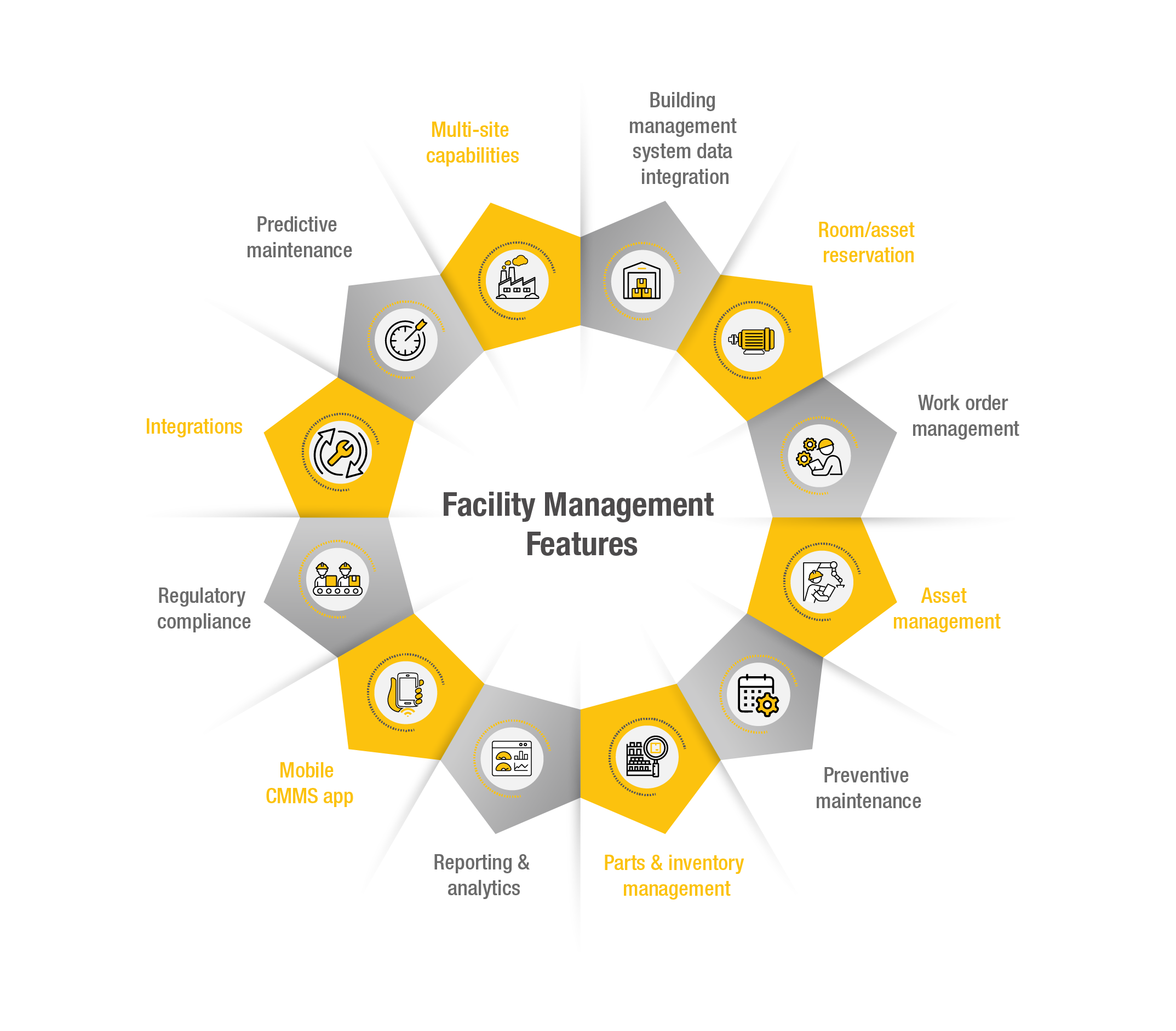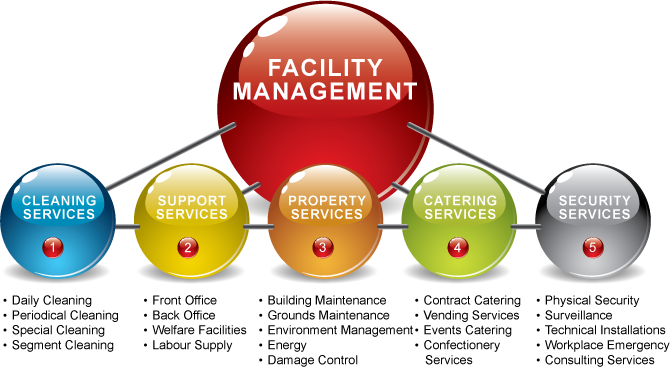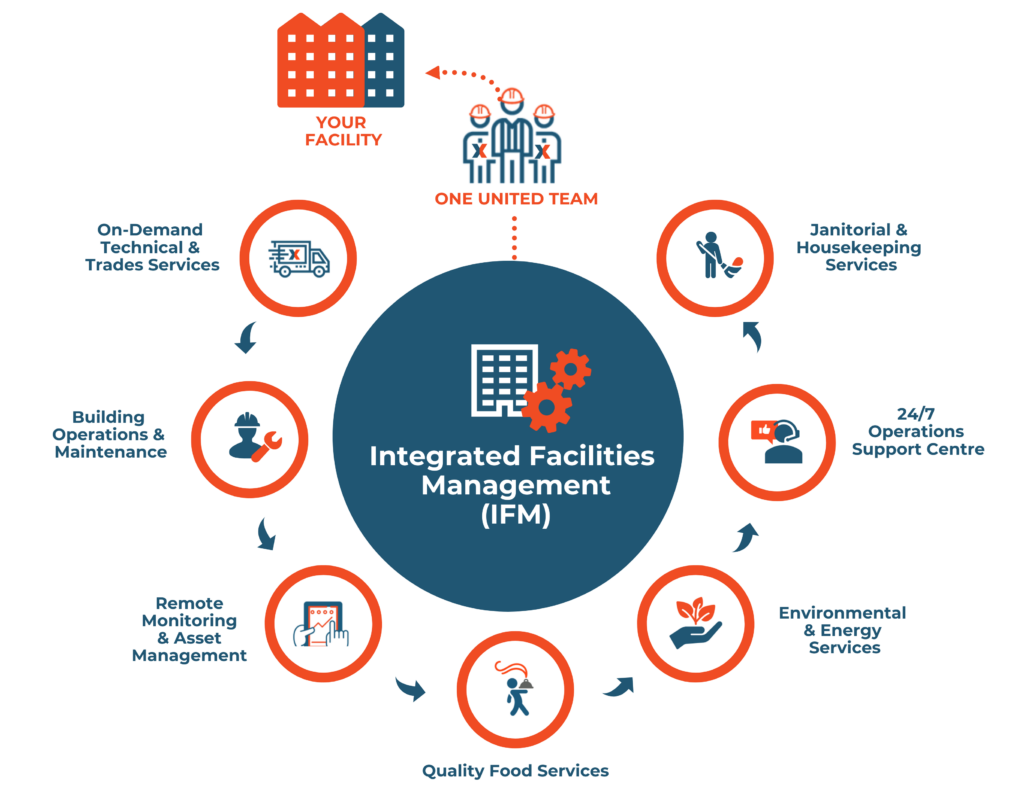Why Facility Management is Critical for Property Long Life
Why Facility Management is Critical for Property Long Life
Blog Article
Key Patterns Forming the Future of Center Monitoring in 2024
As we look ahead to 2024, the landscape of center administration is poised for substantial makeover, driven by several essential trends. The assimilation of wise building technologies and a change towards data-driven decision-making assurance to improve operational efficiency while focusing on sustainability in method.
Smart Building Technologies

Smart building technologies encompass a broad variety of systems, consisting of smart illumination, cooling and heating controls, and protection systems. By incorporating these systems, center supervisors can check and readjust criteria in real-time, bring about substantial decreases in power waste and functional expenses. For instance, smart sensors can spot occupancy degrees and readjust lights and temperature level appropriately, guaranteeing that energy is only made use of when essential.
Moreover, these modern technologies assist in improved information collection, permitting organizations to track usage patterns and recognize chances for further improvements. The execution of wise building technologies not only adds to sustainability goals but additionally produces healthier job atmospheres that can boost staff member performance and complete satisfaction.
As we relocate right into 2024, the adoption of wise building innovations will likely speed up, mirroring a more comprehensive shift towards more intelligent, receptive, and sustainable center management techniques.
Data-Driven Decision Making
Increasingly, organizations are leveraging data-driven choice making to improve center management techniques. By utilizing information analytics, facility managers can acquire actionable understandings that significantly enhance functional effectiveness and source allocation. The combination of innovative innovations, such as IoT sensing units and real-time monitoring systems, allows the collection of huge amounts of data on building efficiency, tenancy rates, and energy intake.
This wide range of information enables center supervisors to identify patterns, anticipate upkeep needs, and proactively address issues before they intensify. Anticipating analytics can anticipate tools failings, reducing downtime and repair work expenses. Furthermore, information visualization devices promote better communication among stakeholders, guaranteeing that notified choices are made collaboratively.
Additionally, data-driven strategies boost strategic planning by enabling center supervisors to analyze the effectiveness of current techniques and make informed choices concerning investments in technology or infrastructure. As organizations increasingly focus on functional quality, data-driven decision making is poised to become a keystone of effective center administration techniques in 2024 and beyond. Ultimately, the capacity to utilize information efficiently will empower organizations to develop a lot more effective, productive, and resilient centers.
Sustainability and Eco-friendly Practices
The emphasis on data-driven choice making normally aligns with the growing emphasis on sustainability and eco-friendly practices within center administration. As organizations find out here now increasingly focus on environmental duty, center managers are leveraging analytics to maximize resource usage, minimize waste, and reduce carbon footprints. This calculated method enables the assimilation of energy-efficient systems, such as LED lighting, clever a/c controls, and renewable resource sources right into facility procedures.
Furthermore, the execution of sustainable techniques prolongs past energy intake. Facility supervisors are promoting and taking on environmentally friendly products recycling efforts to develop a circular economic situation within their centers. This not just enhances the ecological account of the organization however also promotes a society of sustainability among workers.
Conformity with ecological policies is an additional crucial element driving the fostering of green techniques. By using information analytics, center managers can keep an eye on conformity metrics and identify areas for enhancement, making certain adherence to local and worldwide sustainability standards.
Hybrid Work Versions
A substantial shift towards hybrid work designs is improving the landscape of center monitoring in 2024. This standard combines remote and in-office work, requiring a reevaluation of area use, source appropriation, and employee engagement techniques. Organizations are progressively acknowledging the value of versatile work spaces that accommodate varied demands and choices.
Center managers need to adapt by carrying out functional office designs that support collective initiatives while offering locations for concentrated work. This consists of the integration of innovation to promote seamless interaction and cooperation among remote and in-office workers. Smart building options, equipped with analytics and sensing units, enable real-time monitoring of space usage, making it possible for organizations to optimize their atmospheres successfully.
Moreover, hybrid job versions stress the requirement for efficient facility management that focuses on staff member experience. In significance, the hybrid work model is revolutionizing center monitoring, motivating a positive approach to fulfill the advancing needs of the workforce.
Enhanced Owner Health
As organizations embrace hybrid job designs, a heightened concentrate on passenger wellness is coming to be important to facility monitoring methods. Facility Management. This shift identifies that a completely satisfied and healthy workforce straight impacts performance and retention rates. Center managers are currently prioritizing environments that advertise physical and psychological well-being, incorporating elements such as all-natural lighting, biophilic layout, and available wellness sources

Innovation plays a vital function in this development. Smart building systems can keep track of environmental elements and adjust settings in real-time, ensuring optimum convenience degrees - Facility Management. Feedback mechanisms, such as tenancy sensors and employee find out here now studies, enable facility supervisors to continuously fine-tune wellness initiatives based on owner requirements.

Conclusion
In 2024, the future of center administration will certainly be considerably affected by the assimilation of smart building modern technologies and data-driven decision-making, fostering enhanced functional performance. Sustainability efforts will prioritize green practices, while the development of crossbreed job versions will necessitate versatile workplace layouts. Furthermore, a heightened concentrate on passenger health via advanced heating and cooling systems and biophilic style will add to much healthier workplace. These fads jointly emphasize the advancing landscape of center monitoring in action to modern obstacles and possibilities.
Center managers are promoting and adopting green products recycling campaigns to develop a circular economy within their centers.A considerable shift in the direction of hybrid work versions is reshaping the landscape of center monitoring in 2024.Furthermore, hybrid job models stress the requirement for effective center management that focuses on worker experience.As companies accept hybrid work designs, an increased emphasis on resident wellness is ending up being essential to center management approaches.In 2024, the future of facility monitoring will be significantly influenced by the integration of wise building pop over to this site modern technologies and data-driven decision-making, promoting improved functional efficiency.
Report this page